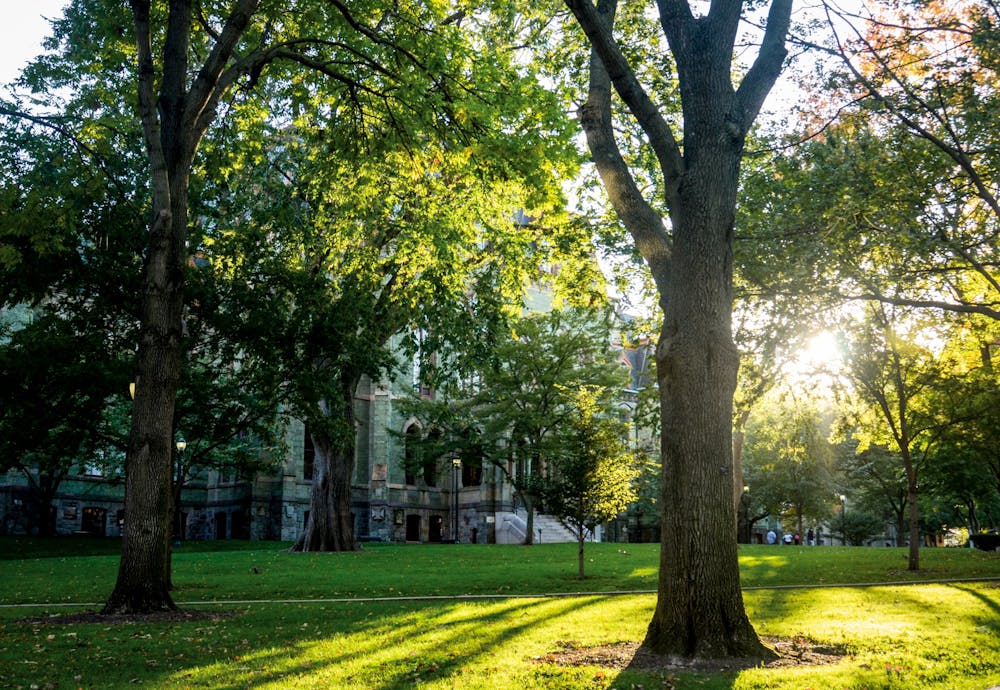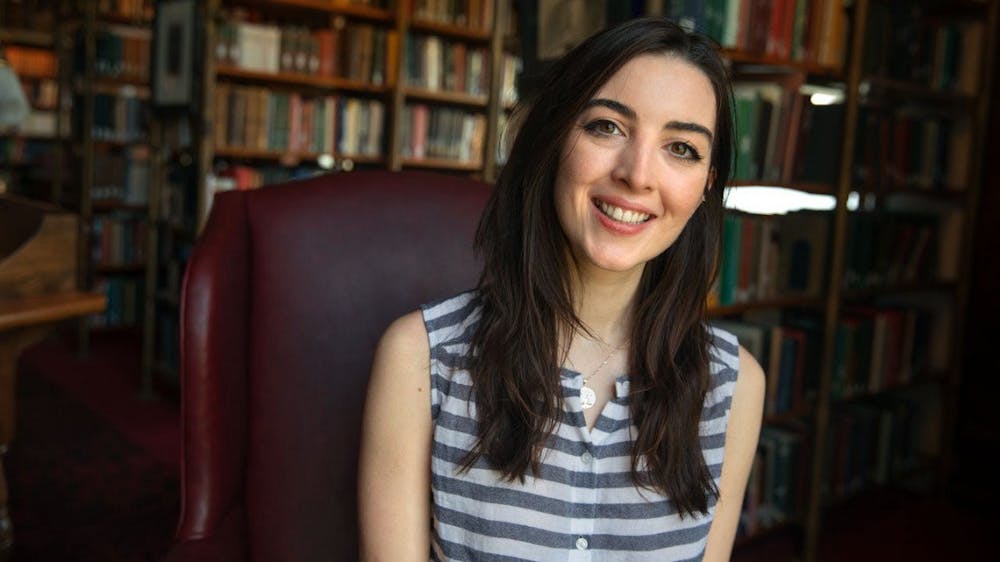
In spring 2021, a new course will examine the effects of capitalism and colonialism on the environment largely through the lens of Indigenous literature.
Mellon Postdoctoral Fellow Rebecca Macklin will teach the course, called Imagining Environmental Justice, which will be offered through the Penn Program in Environmental Humanities. The course is cross-listed as ENGL 309, COML 308, and ANTH 339.
Throughout the semester, Macklin will lead her students in analyzing the climate crisis through novels, poetry, film, and nonfiction works. Literature and artwork, much of it by Indigenous North American, South African, African American, and Palestinian creators, will form the foundation of the curriculum.
Since the course is closely aligned with Macklin’s work in environmental justice and Indigenous literature, she said she is excited to share and discuss texts she loves, many of which she has either written about already or plans to in the future. Macklin considers her students to be her “co-investigators,” and looks forward to hearing their opinions and analyses
The course can also be used to fulfill requirements for the Native American and Indigenous Studies minor, because it explores the destructive impacts of colonialism on the environment. The materials that Macklin chose for the class highlight Indigenous creators who express their voices and pain through stories, songs, and poems. These artists come from a wide range of backgrounds, including the First Nations people in Canada and Marshall Islands residents.
The idea of environmental justice, Macklin said, is the need for harmonious relationships between humans, their surroundings, and animals, where human well-being isn’t elevated over nature. She explained that the structural inequalities that hinder this justice are intersectional.
“A lot of the injustices that we see in terms of the environment are about the legacies of things like colonialism, dispossession, systemic racism, the patriarchy, and misogyny. All of these different kinds of inequalities reverberate through the environment and how we manage our environments,” Macklin said.
College junior Rachel Swym echoed these sentiments. She said she has studied these inequities before in other classes for her Environmental Humanities minor, and she’s interested in the diverse approach of the Imagining Environmental Justice course. Swym said that even today, the faces of environmental activism movements often don’t represent the Black and brown communities that are most threatened by climate change.
“The face of climate change in the media is very white and young and very future-oriented,” Swym said. “The people participating in [climate marches] aren't necessarily the ones who are suffering right now.”

Macklin emphasized that literature and the humanities have the unique power of developing empathy and helping people understand the environmental crises outside their own cultures.
“I think that the arts and the humanities really allow us to conceptualize things that are quite difficult otherwise,” Macklin said. “It's sometimes quite hard to imagine outside of our own experiences.”
The concept of slow violence — gradual, unseen environmental consequences like air pollution — is an instance where Macklin believes literature and art help people grasp environmental issues. Slow violence will be addressed in the first unit of the class. Macklin pointed to the Philadelphia Energy Solutions refinery as an example — it exploded in 2019 but leaked toxins into the air long before the fire.
Macklin plans to guide her class through the process of creating an online exhibition for the final unit, which focuses on contemporary environmental issues and public engagement. Students can choose from a variety of content forms, like podcasts and visual art, to tell stories of environmental justice. Macklin stressed the importance of sharing these ideas with the public, especially with people who lack a background in literature or a college degree.
“A lot of the time in the arts and humanities we’re asked, ‘how does this help anyone?'” Macklin said. “I've done quite a bit of work with the public, with communities, which has just really made me realize the need for any research to have real public impact."
The class is part of PPEH’s new Environmental Humanities minor, which was introduced in 2019 and encompasses an interdisciplinary mix of courses in the natural sciences, social sciences, and humanities fields.
College junior and Under the Button staff member Mikayla Golub, who is in the Environmental Humanities program, believes the course's humanities focus allows students who aren’t STEM-oriented to join the climate change conversation. Golub said her studies in history led her to have a deeper understanding of the climate crisis.
“I think it's important to understand how we got here and also how we conceptualize our place in the world in relation to the natural environment,” Golub said.
Macklin hopes that her class will attract a variety of students from different academic backgrounds.
“You don't have to be a pure scientist to be able to help make positive change and science also doesn't have to be the exclusionary monolith we sometimes paint it as," Swym said. "Science and climate activism isn't just for academics, nor is it just for professional activists. It’s for artists. It’s for anthropologists. It’s for all of these different people from all of these different disciplines who come together."
The Daily Pennsylvanian is an independent, student-run newspaper. Please consider making a donation to support the coverage that shapes the University. Your generosity ensures a future of strong journalism at Penn.
Donate




